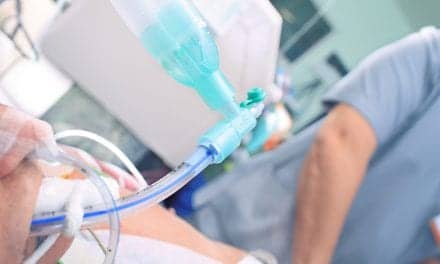University of Virginia Health System researchers have identified a potential treatment to prevent severe COVID-19 in obese and diabetic patients—considered high-risk—by protecting them from the runaway inflammation and dangerous blood sugar spikes that COVID-19 can cause.
The new research by Jie Sun, PhD, and colleagues was published in Science Immunology.
“Our work has uncovered a metabolic pathway that concurrently modulates COVID-19 inflammation, lung recovery, and host metabolic health and suggests a potentially viable therapeutic agent that may be combined with existing anti-viral agents to treat severe COVID-19 in patients with underlying metabolic disease,” says Sun, of University of Virginia’s Division of Infectious Diseases and International Health and University of Virginia’s Carter Immunology Center, in a press release.
The researchers hope the study could spark interest in clinical trials to prevent or treat severe viral infections like COVID-19 in diabetic and/or obese individuals using a second-generation insulin sensitizer.
Preventing Severe COVID-19
Sun’s approach seeks to prevent severe COVID-19 by targeting the carrier of fuel to mitochondria, the powerhouses of our cells. Sun and his team found that reducing the activity of this carrier protected obese lab mice from severe illness caused by influenza and COVID-19. The reduction of the fuel supply simultaneously reduced harmful inflammation and promoted metabolic health. It also helped prevent harmful blood sugar spikes associated with COVID-19 and promoted lung recovery after COVID-19 and influenza pneumonia.
The researchers noted that their approach “synergized” with the antiviral component of Paxlovid (nirmatrelvir) to “markedly” reduce mortality in the lab mice. That suggests it may be possible to use an insulin-sensitizing drug to obtain similar results in human patients with COVID-19.
“We know that steroids are effective in severe COVID-19, but these drugs have side effects like elevated blood glucose that make their use more complicated in obese and diabetic patients,” says study co-author Jeffrey Sturek, MD, PhD, a University of Virginia pulmonary and critical care physician-scientist specializing in COVID-19 disease. “The really exciting part about this pathway is the ability to treat both inflammation as well as altered glucose metabolism.”
To assess the potential benefits in humans, the scientists tested their approach using human lung tissue samples. They were pleased to see the drug diminished cellular inflammation—a promising sign, though more testing will be needed.
Based on the results, the University of Virginia scientists and Cirius Therapeutics, the maker of the insulin-sensitizing drug the scientists used, are planning a clinical trial testing the drug in human patients with COVID-19.
Cirius Therapeutics is developing the drug to treat liver damage in patients with non-alcoholic fatty liver disease. The drug works through a recently identified mechanism to reprogram mitochondrial metabolism and has an “outstanding” safety profile, the researchers note in a scientific paper outlining their findings.
That leaves the University of Virginia scientists hopeful that their new research could make a real difference for people at high risk for severe COVID-19.
“Diabetes increases COVID-19 severity, and, conversely, COVID-19 can lead to blood glucose rise,” says Sun. “Our work suggests that we can use a second-generation Thiazolidinedione drug to break the network of SARS-CoV-2 infection, hyperglycemia, and hyper-inflammation, all factors known to drive COVID-19 pathophysiology.”










